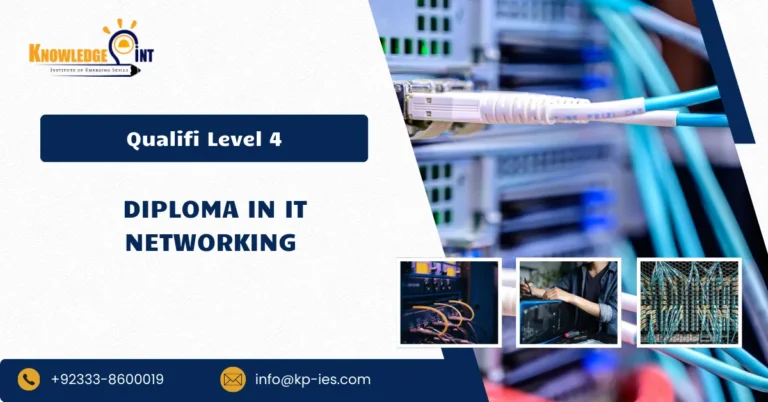Qualifi Level 7 Diploma
Information Technology
Awarding Body
Qualifi
Credits
240 credits
Course Type
Ofqual Regulated
study mode
Online Learning
Course overview
The Qualifi Level 7 Diploma in Information Technology is an advanced qualification designed for professionals and graduates who are looking to strengthen their expertise in the rapidly evolving IT industry. Tailored to meet the demands of today’s digital economy, the course provides learners with in-depth knowledge of strategic IT management, emerging technologies, enterprise systems, and data-driven decision-making.
This diploma is particularly suitable for those aiming to progress into senior leadership, consultancy, or managerial roles within IT departments or technology-driven organisations. It offers a balanced blend of technical knowledge and business acumen, enabling learners to align IT strategies with overall organisational goals. Core areas of study include IT innovation, information security, project planning, system development, and the ethical use of technology in business environments.
One of the key strengths of the programme is its focus on real-world application. Learners are encouraged to apply critical thinking and problem-solving skills to practical scenarios, enhancing their ability to manage complex IT projects and lead technological transformation. The curriculum also places strong emphasis on data governance, regulatory compliance, and cybersecurity—areas that are increasingly critical in global digital operations.
The diploma is internationally recognised and opens the door to numerous opportunities. Graduates can pursue higher-level qualifications such as a Master’s degree or an MBA with advanced standing. In addition, it significantly enhances career prospects in areas such as IT consultancy, systems analysis, project management, data analysis, and strategic technology planning.

Approved Training centre of Qualifi
For Qualifi Qualifications

Entry Requirments
Entry Requirements for the Qualifi Level 7 Diploma in Information Technology
- Educational Qualifications:Applicants should normally hold a Level 6 qualification or equivalent in information technology, computing, computer science, or a related discipline. Relevant international qualifications are also accepted.
- Professional Experience:Applicants without a formal Level 6 qualification may be considered if they have substantial relevant work experience in IT, systems management, software development, networking, or senior technical roles.
- English Language Proficiency:Applicants must demonstrate a high level of English language proficiency, typically equivalent to IELTS 6.0 or above, or provide evidence of prior academic study or professional experience conducted in English.
Course structure
The Qualifi Level 7 Diploma in Information Technology consists of 6 mandatory units which are as follows.






